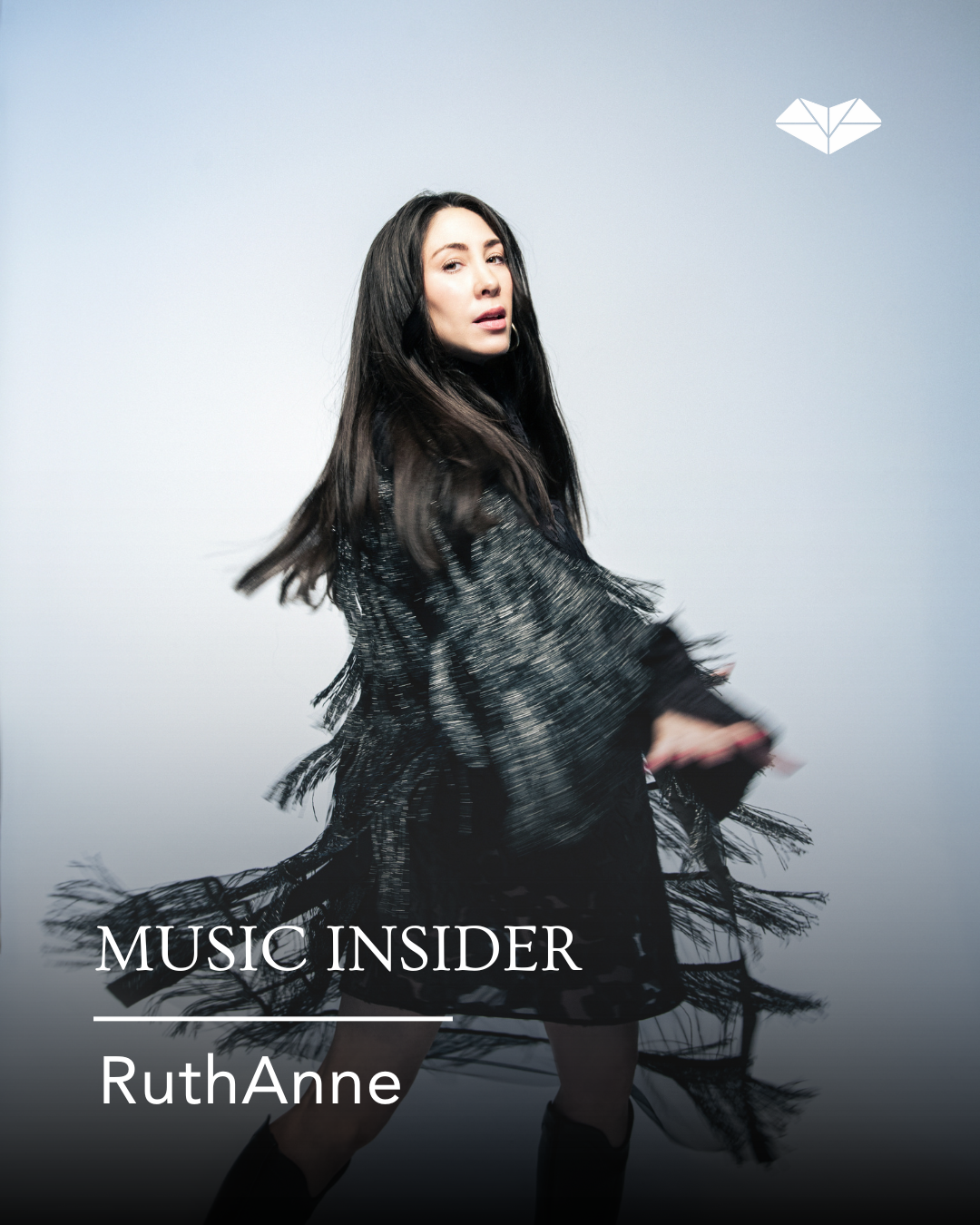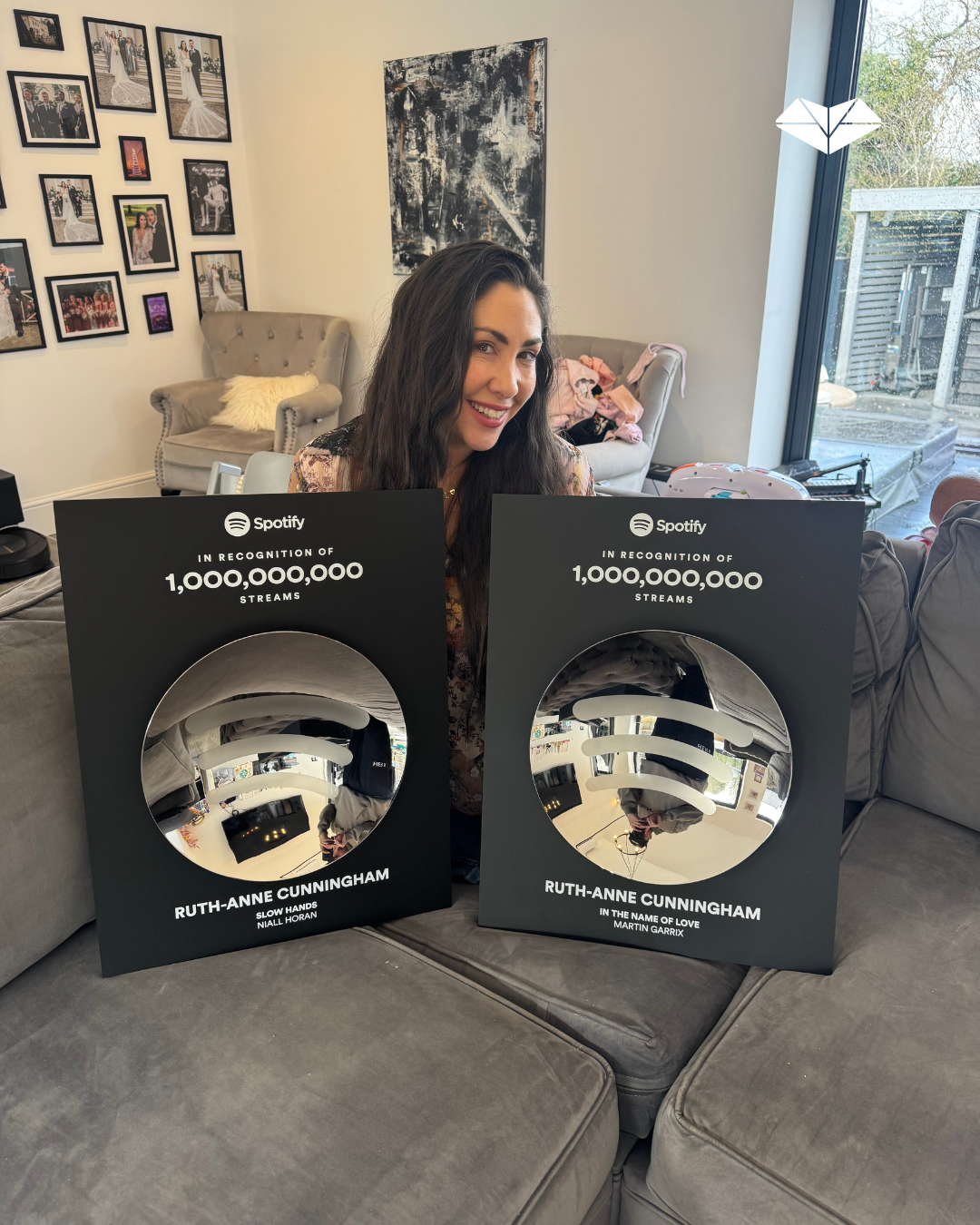Dublin-born songwriter, artist, mother, and now author, RuthAnne has spent two decades shaping the sound of modern pop. At 17, she penned JoJo’s Too Little, Too Late, a Top 5 US and UK hit that launched her into the global songwriting spotlight. Since then, she has written era-defining tracks for Britney Spears (Work Bitch), One Direction (No Control, Where Do Broken Hearts Go), Martin Garrix and Bebe Rexha (In The Name of Love, 1.5B streams), and many more.
As an artist, RuthAnne’s debut single The Vow (2018) has become a modern classic, hitting No.1 in Ireland, entering the UK Top 40, and soundtracking weddings and celebrations worldwide. In 2025, she returns with her second album The Moment—a deeply personal record exploring love, loss, motherhood, resilience, and womanhood. Its lead single, The Way I’m Wired, tackles her lived experience with endometriosis, a cause she also champions as an ambassador for Endometriosis Ireland and through her schools project, Endo&ME.
This year also sees RuthAnne publish her first book, It’s Not Just a Song, a candid guide for young artists navigating the music industry. Balancing life as a mother of two with her work as a hitmaker and advocate, RuthAnne continues to create music and stories rooted in truth, connection, and the human condition.
You’ve been writing hits since you were 17. Looking back, what do you know now about songwriting that you wish you’d known then?
I think the main thing I wish I’d known back then was how important the dynamic of the writing room is. It can really make or break the song on any given day, and learning how to navigate those dynamics is key.
You’re a singer, songwriter, author, advocate, and mother of two. What advice would you give to creatives trying to juggle multiple roles without losing their artistic core?
My biggest advice would be to trust the process and stay true to yourself. Don’t compare yourself to others. Lean into your passions, focus on your own journey, and trust that process. Take one thing at a time, one day at a time, and it’ll all work out in the end if you put the work in
Your book It’s Not Just a Song includes conversations with writers like Amy Allen, Emily Warren, and Dan Wilson. What are the biggest common threads you noticed in how great songwriters approach their craft?
I guess the biggest common thread through interviewing the biggest songwriters was understanding that the best songs usually come from the conversations in the room that day. They stem from the real things that the creatives are experiencing. The key is to embrace that, to talk, to hang out, then the song will come.
What’s one lesson about the music business you feel every emerging artist should learn early, even if it’s tough to hear?
That it’s a game. Those who know how to play the game smartly usually are the most successful. At the end of the day, it’s a business, and that can be hard for creatives because we make art. Art and business don’t mix well, so it’s learning how to navigate that and thrive in it. And remembering, talent alone is not enough. You need determination, a great work ethic, and to be able to play the game.
With over 12 billion streams across your catalogue, what do you think separates songs that quietly come and go from those that travel the world and keep resurfacing, like The Vow?
I think it’s anything that has a universal sentiment. Songs that have that will always resurface and have impact. With ‘The Vow’, the lyrics have an emotional impact for a lot of different types of love - love between couples, between parent and child, or between best friends. It makes people feel something they’ll always remember. If a song is empty, it won’t last. The songs that last are the ones that mean a lot to people, people will carry those songs with them throughout their lives.
Mentorship is a strong theme in your work. For artists who don’t yet have access to mentors, what practical ways can they create their own “support system”?
I think being a part of the music community. Get yourself and your music out there. Create that support system around you and really be a part of the community in whatever way you can. It’s going to open mic nights, finding collaborators, going to music events, joining the music societies that have panels, talks, and resources.
Your upcoming album The Moment was written in the most personal corners of daily life: breastfeeding, commuting, acupuncture tables. How did writing in those “in-between moments” change the way you see creativity?
Writing the album this way reminded me that you truly can write, be inspired, and create anywhere. You don’t need big budgets or fancy recording studios, you can literally write anywhere at any time. It brought me back to being a teenager in my bedroom, just writing because it was my passion.
You’ve written across so many genres for other artists. How do you decide what’s a “RuthAnne song” versus one you’d give away?
It used to be hard deciphering what song is for me versus what songs to give away because in my earlier years I was still figuring myself out as an artist. But now it’s very clear. When I go in with an artist, I’m writing for their project and helping them tell their stories, and I love doing that. Then I write a lot of my own songs either alone or with producers where the lyrics and melodies are very much my story. The time I spend on my records is intentional, focused time where I’m writing for myself, so it’s easy to separate the two. I get creative fulfillment doing both. One can’t really exist without the other.



